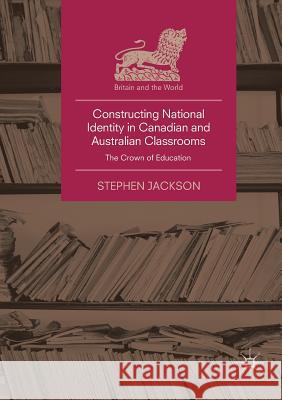Constructing National Identity in Canadian and Australian Classrooms: The Crown of Education » książka
topmenu
Constructing National Identity in Canadian and Australian Classrooms: The Crown of Education
ISBN-13: 9783030077617 / Angielski / Miękka / 2019 / 282 str.
Kategorie BISAC:
Wydawca:
Palgrave MacMillan
Seria wydawnicza:
Język:
Angielski
ISBN-13:
9783030077617
Rok wydania:
2019
Wydanie:
Softcover Repri
Numer serii:
000439201
Ilość stron:
282
Waga:
0.35 kg
Wymiary:
21.01 x 14.81 x 1.57
Oprawa:
Miękka
Wolumenów:
01
Dodatkowe informacje:
Wydanie ilustrowane











